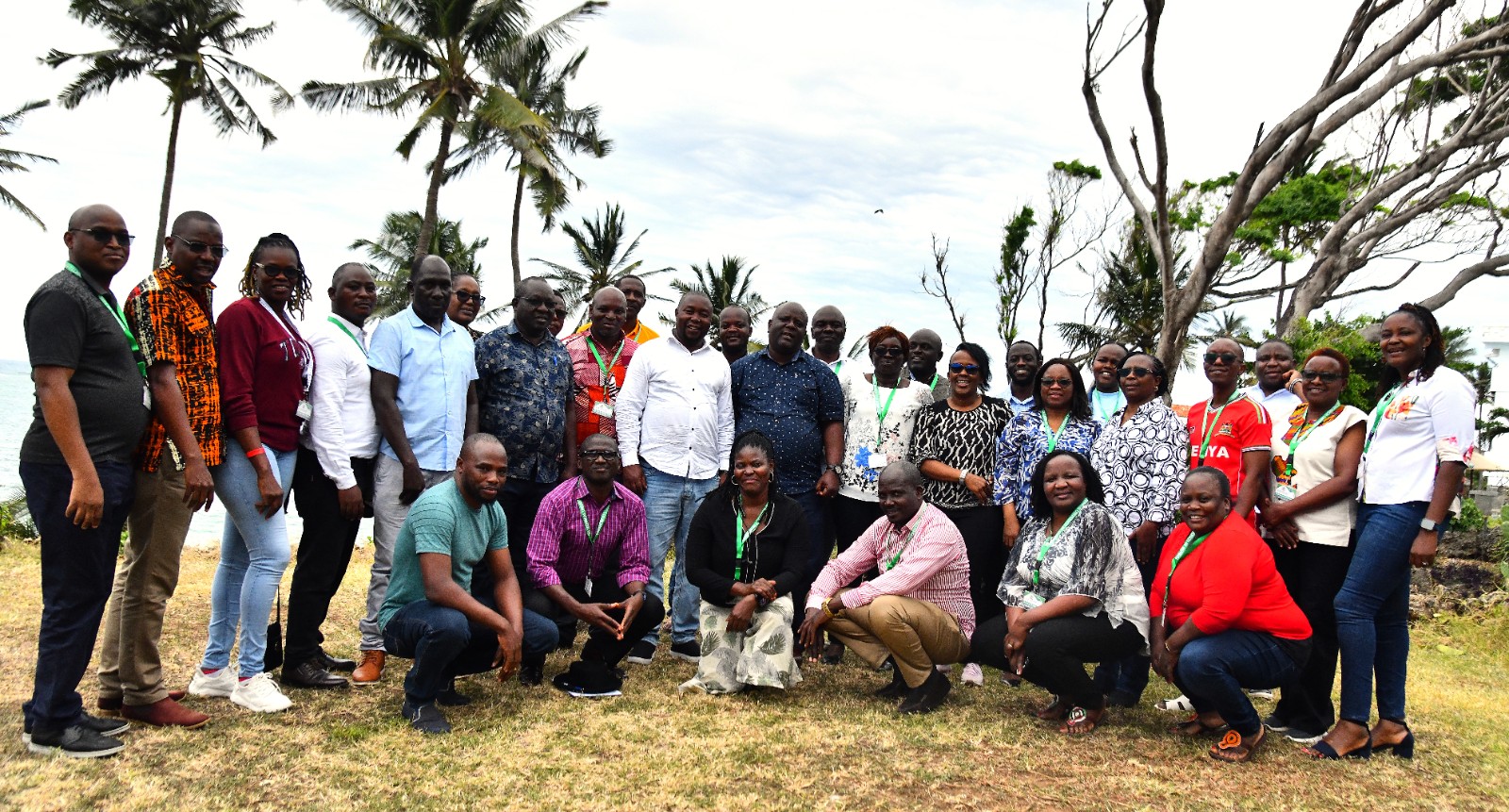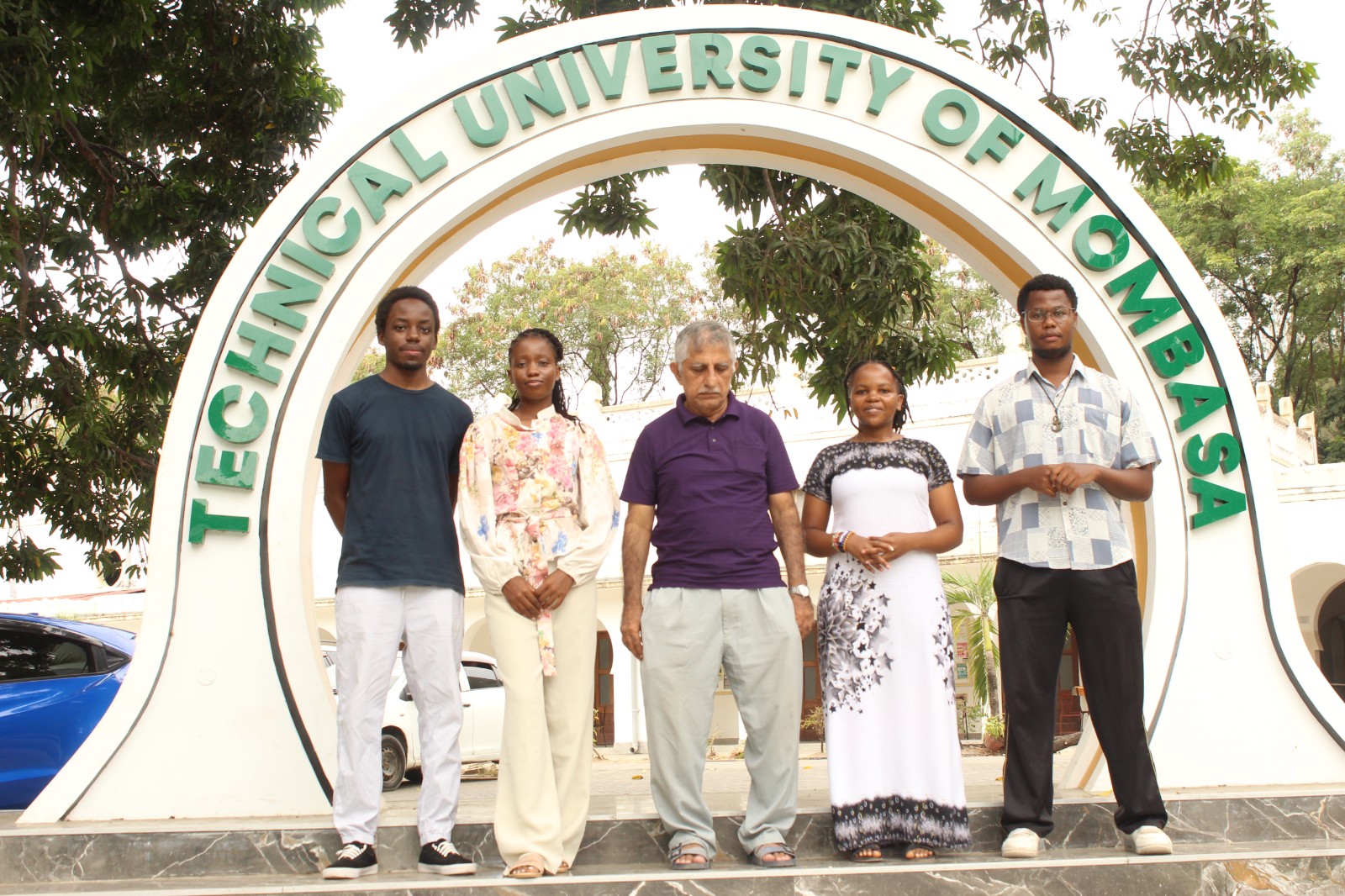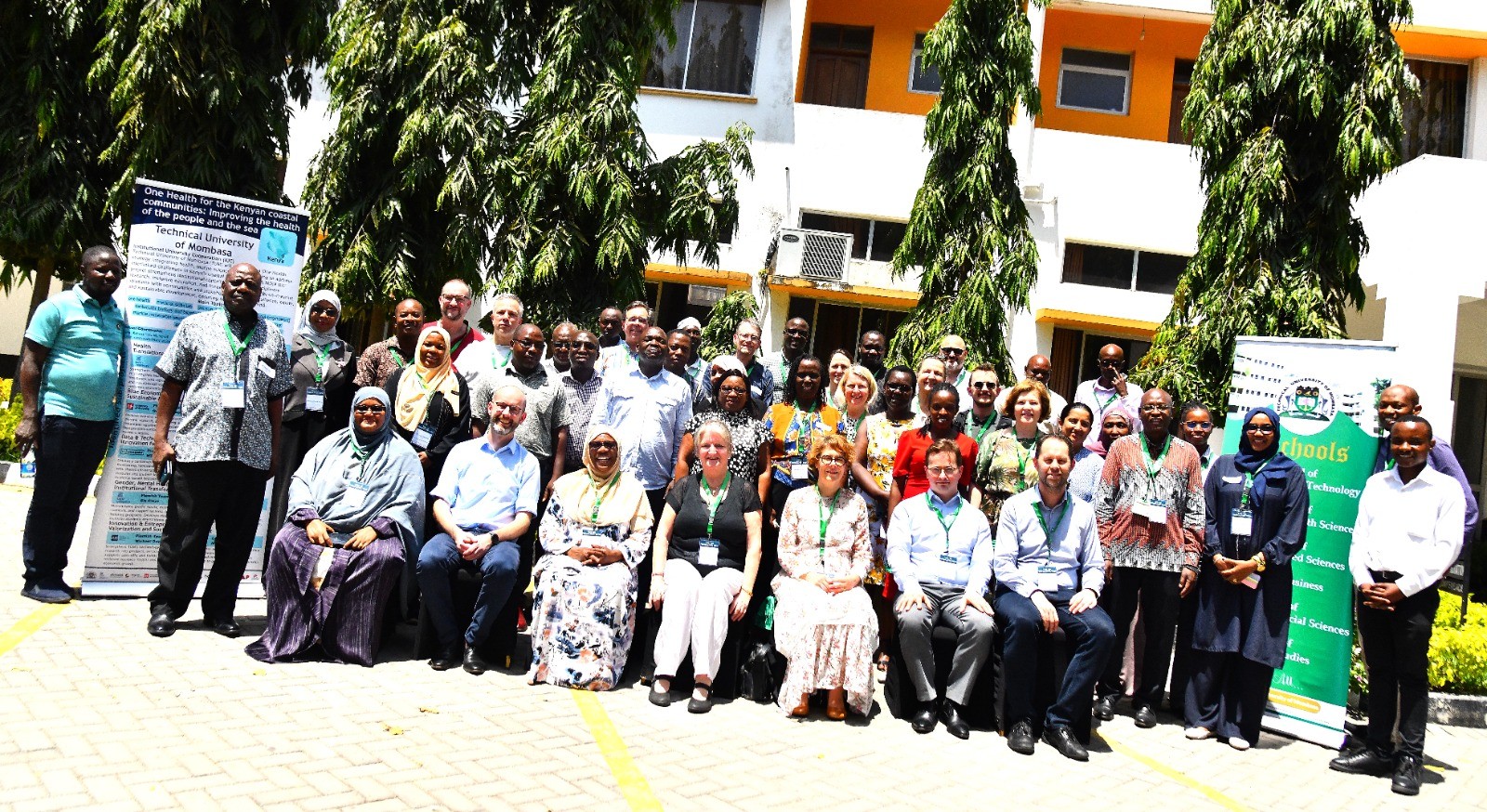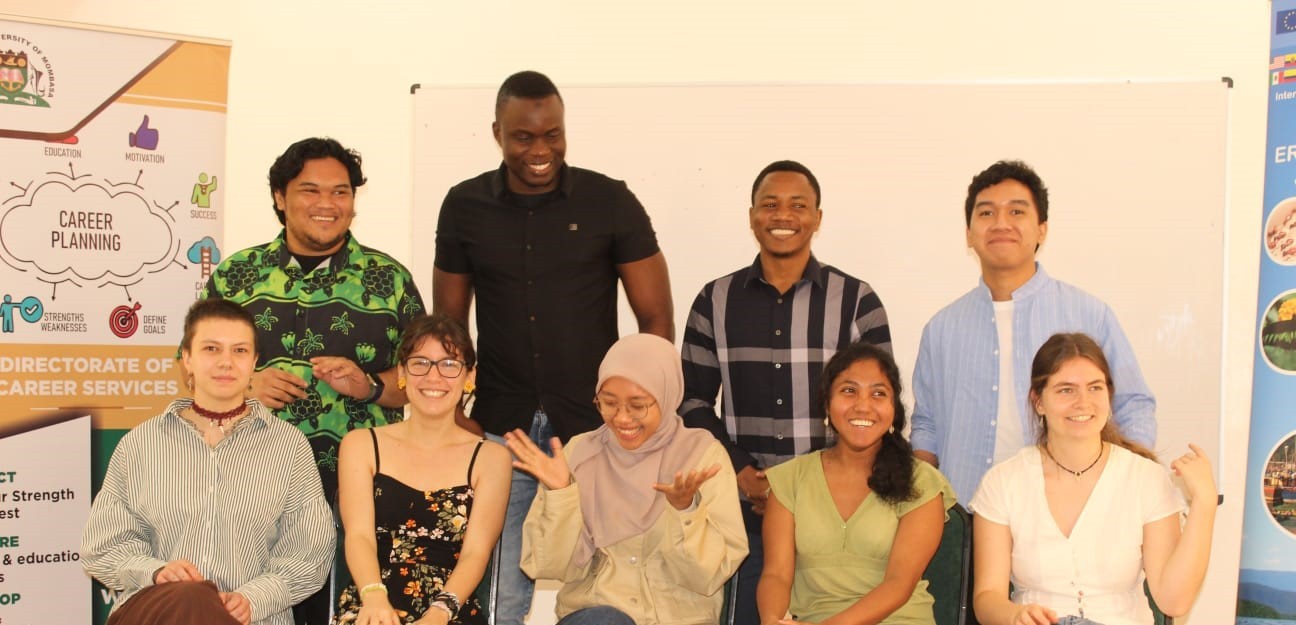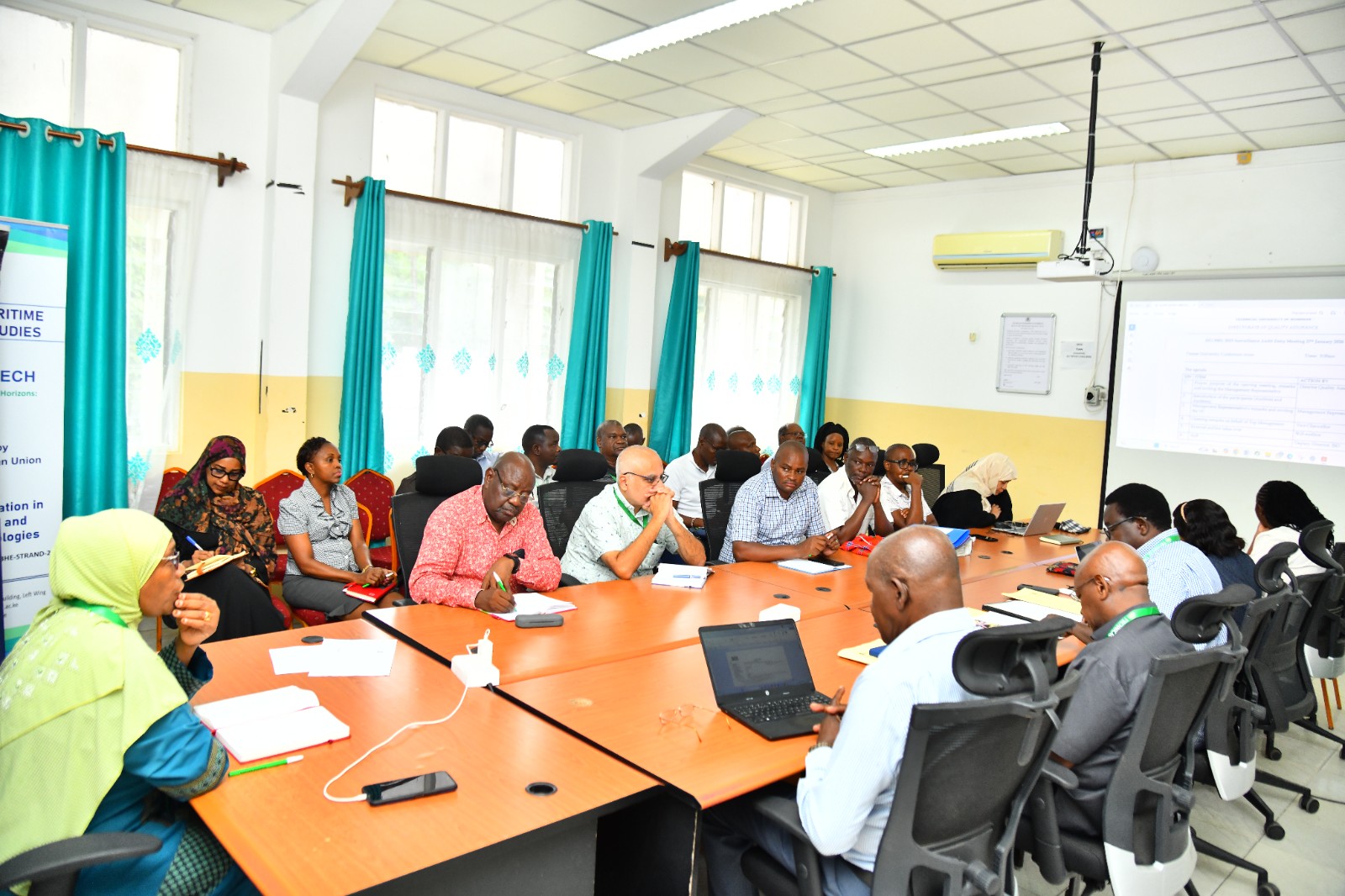Following the success of Day 1, the Kenya DAAD Scholars Association (KDSA) workshop at Mombasa Beach Hotel continued to unite over 50 participants from across Kenya, including representatives from Technical University of Mombasa (TUM), Masinde Muliro University of Science and Technology (MMUST), Pwani University, University of Nairobi (UoN), Jomo Kenyatta University of Science and Technology (JKUAT), Technical University of Kenya (TU-K), Kisii University, Chuka University, Moi University, Kenya Marine and Fisheries Research Institute (KMFRI), Inqaba, GIZ, among others.
Key Themes and Discussions
The workshop explored critical themes bridging academia and industry. Topics included knowledge and skills transfer, intellectual property, Systematic Approach to Training (SAT), leadership, workgroup management, and synergistic collaboration. Presentations also merged sustainability in education with mental wellness, emphasizing their growing importance globally. Other highlights covered researchers’ working conditions, open access publishing, information sharing, funding opportunities, and the evolving role of Artificial Intelligence in education and research. Integration of academia with government and policymakers was also a key subject of discussion.
Policy Perspectives and Leadership
An interactive session led by Hon. Innocent Mugabe, MP for Likuyani Constituency and former TUM lecturer, focused on policy recommendations for research, higher education access, and funding. His input sparked rich discussions about Kenya’s education system, financing models, and academic challenges. He underscored leadership by knowledgeable academics in the government as vital for shaping effective policies and advancing education.
Reflections from Participants
Dr. Alice Onyango, Lecturer at Maseno University’s Department of Chemistry and an Agricultural Scientist, reflected on the workshop:
"What I enjoyed most was the opportunity to network and share ideas on how we can advance our research and support our students' improvement. The topics covered were very relevant, ranging from collaborating with partners in industry, academia, and research institutions to effective networking strategies. We also discussed the challenges researchers face, mental wellness, and how to lead our teams. I look forward to attending future workshops that cover relevant and current topics, especially those related to AI, which is rapidly evolving and crucial for all sectors. Overall, it was a wonderful experience, and the scenery was great too!"
Dr. Cyril Wandera, a Senior Lecturer in the Mathematics and Physics Department at TUM, expressed utmost satisfaction with the workshop's outcomes.
Dr. Wandera further suggested, "It is important to involve more policymakers, such as Governors, Senators, and Members of Parliament, in the future workshops, to achieve a broader impact. Additionally, we should invite non-DAAD scholars to future workshops to enhance knowledge exchange."
He also encouraged researchers to step outside their comfort zones by actively writing proposals, conducting research, and sharing findings. He highlighted the necessity of training in research methods and effective communication of research findings to ensure they reach wider audiences and influence policy and practice.
Workshop Engagement and Closing Remarks
The workshop featured lively group and panel discussions and networking sessions, fostering collaboration among academia and industry professionals.
Dr. Wanyenda Chilimo, the TUM Librarian, represented the Vice Chancellor in closing the workshop and also delivered the vote of thanks, expressing her appreciation to DAAD for funding the KDSA event, the GIZ and Inqaba industry representatives who sacrificed their valuable time to grace the event, Prof. Halimu Shauri of Pwani University for being present in the three-day conference despite his busy office as DVC of Research and Extension, all participants for their presence and active engagement, and all the organizers led by the committee secretary Dr. Eric Jobunga, along with the technical team and all the others who contributed to the success of the workshop. She emphasized their collective dedication to enhancing research and capacity building.
Conclusion
The KDSA workshop proved highly beneficial, providing a dynamic platform for knowledge sharing, strategic discussions, and partnership building. The connections and insights gained will contribute to strengthening Kenya’s research ecosystem and fostering sustainable growth in academia and industry.

